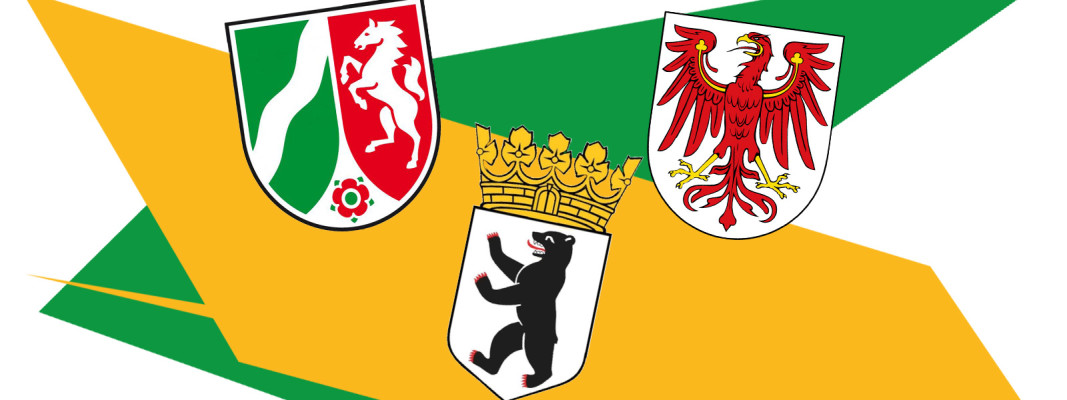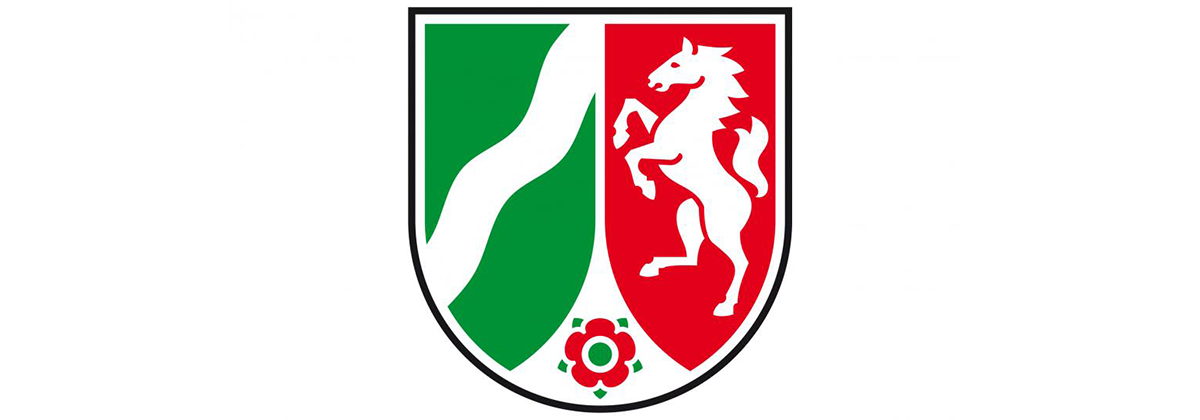Hygiene regulations in the individual federal states Part 3

Let's move on to part three of our hygiene series on the different federal states. Today we are looking at Berlin, Brandenburg and North Rhine-Westphalia.
NORTH RHINE-WESTPHALIA
The state of North Rhine-Westphalia also has a hygiene concept that applies to tattoo and piercing studios.
The relevant document can be found on the website of the North Rhine-Westphalia State Centre for Health and can be viewed by everyone. As in the federal states that we have already discussed in the other parts, the health risk for tattooists and their customers is also pointed out in NRW. There may be risks from blood-borne viruses, bacterial infections or allergens from pigments. Unlike in other federal states, the state of NRW also has qualification requirements for tattooists. These are as follows:
- Reliable
- Mastering the technique of tattooing
- Recognising Risks
- Complying with measures to control the risk
- Refusing the tattoo in the event of particular risks present
In addition, the tattoo artist should have basic knowledge in the following areas: General and special microbiology, germ sources and transmission routes, pathogens of skin and wound infections, transmissible viruses such as hepatitis B and C as well as HIV. As a tattoo artist in NRW, you should also have basic knowledge of general hygiene (germ sources, germ transmission routes, etc.), special hygiene (cleaning, disinfection, waste disposal, etc.) and an overview of personnel protection measures (disposable gloves, protective clothing, etc.) and measures that promote the complication-free healing of tattoos.
As can be seen from the NRW state document, the aim is also to create a standardised curriculum with teaching content. This will then be tested in a written examination and a corresponding certificate will be issued. There are also special requirements in North Rhine-Westphalia that apply to the rooms and furnishings in your studio. The room in which tattoos are performed must be sufficiently large, naturally ventilated and adequately lit. The tattoo room must also be spatially separated from the waiting area and should include a hand washing area. The walls and floor should be smooth, washable and disinfectable. Furnishings such as a tattoo chair or your work chair should also have a smooth and easy-to-clean or disinfect surface. The state of NRW recommends using wipes rather than spray disinfectants for disinfecting floors and small areas of furniture. As in the federal states already presented, disposable needles must be disposed of in special containers after each session in NRW. The colour must also be prepared separately in ink caps for each customer and disposed of after the session. The state of NRW also advises using an ultrasonic device to pre-clean handles, for example.

BERLIN
But in the end we did find what we were looking for.
As in the previously presented federal states, the tattooist's workspace and the counselling room must be physically separated from each other. Work surfaces and surfaces in the work areas must be easy to wipe down and clean.
The tattooist's immediate workplace should also be clearly organised and free of unnecessary items such as newspapers, ashtrays and the like. As a tattoo artist, you should use disposable needles in sterile packaging and dispose of them properly after use. Your reusable instruments must be cleaned, disinfected and sterilised after every tattoo session. Disposable gloves must be worn during the tattooing process.
As a tattoo artist in Berlin, you must also inform your customers about possible risks, complications and the necessary aftercare before the appointment. Ideally, your studio should also have liability insurance for damage to health.

BRANDENBURG
In Brandenburg, the tattooing workstation must also be physically separated from the waiting room. Only work equipment and materials required for tattooing may be kept in the work area. The room should be well lit and ventilated. In addition to a washbasin, there should also be a dispenser with soap or disinfectant. You will also need a waste bin and a disposable towel holder. If your sink is too close to your tattoo chair and there is a risk of water splashing onto your machine or your customer, a splash guard must be installed. It must be possible to clean the floor and walls when wet. The same applies to your furnishings such as work surfaces, couches and chairs in the treatment area. Food is an absolute no-go in the work area, as are animals. Accompanying persons may only be in the immediate working area if a distance of at least one metre from the treatment zone can be maintained.
Your machine must be cleaned, disinfected and sterilised after each session. Disposable materials such as gloves, needles or ink caps must be disposed of after each session. All contaminated surfaces in your work area must be thoroughly cleaned and disinfected after the session. Needles must be disposed of in a puncture and break-proof container and then sealed and disposed of in the household waste.
You or your colleagues should remove any jewellery before each session, if you have long hair it must be tied up and hands must always be thoroughly cleaned and disinfected.
In Brandenburg, the customer must also be informed and advised before tattooing.

Again, if you have any questions about hygiene in your studio, please contact your local health authority directly.

 German
German Dutch
Dutch